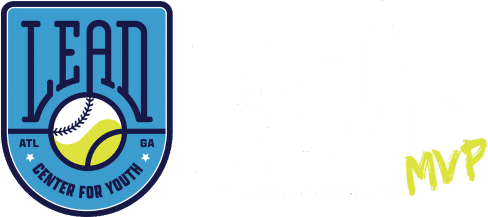Guest blogger and L.E.A.D. Board Member and founder of Renaissance Sports Kevin Donovan and responds to L.E.A.D.’s CEO CJ Stewart’s September 14, 2015 blog post “There is No Silver Bullet, Right?”
I have long felt that the secret to L.E.A.D.’s successful methodology is its comprehensive scope: It is not just sports, academics, service, etc. It is instead, a holistic methodology that is like a three legged stool – all three are required to succeed. The legs are:
Expression (individual) – This is the sports element for L.E.A.D. and for other Non-Profit Partners (NPPs) it could be something else. This is the forum through which a young person develops their personal identity (L.E.A.D.’s sports pillar – Baseball)
When we look at these elements together, it becomes obvious that they all must be present for any single one of them to succeed. If we were to look backwards at all the failures of programs and initiatives intended to address the challenges of inner city youth, we would find that they are missing one or more of these “legs”.
Success requires true empathy – the ability to truly imagine what the world is to a young Black kid without a stable family structure. In starkest, simplest terms, it means no future, only present. But if the three legs are there, then their entire perception of what the world is actually about is transformed. And ironically it has nothing to do with race – any human in these circumstances would have exactly the same personal experience and react exactly the same way. But give them structure/community/expression and the path forward is lit!
We live in a city that is rightfully sensitive to spending on anything that doesn’t deliver a return on investment – a perception that is fueled by a history of poor performance and lack of accountability. This makes it easy for many to give up – to rationalize indifference, accept inferiority and distance ourselves from the consequences. And, that always brings us back to the all-important “why” question; why should we, the community as a whole, care?
Not because this is charity, not because we might feel guilty, not because you and Kelli are really nice people. In the big picture, none of those motivations are relevant. The reason we must care is because the future of our city will be directly determined by the quality and character of our youth. And in that sense, we have now seen a glimmer of a return on our investment. Like any investment, a good one is a function of discipline, focus, and an applied methodology that provides a path to a return. In financial terms, L.E.A.D. is a growth stock with a portfolio of Ambassadors that show tremendous promise over the long term. By collaborating with Atlanta Public Schools (APS) and the other NPP’s, we should be able to “merge” and expand our portfolio to deliver an even greater return on our shared investment, defined as fulfillment of the APS mission.
Of course, we’re talking about people here, not stocks, but we also know that investors respond to what’s in it for them, and in our case its nothing less than the future of our city.
I know I’m not telling you anything you don’t already know – just trying to articulate it for what I think is the next step on the road map: A meeting with Dr. Meria Carstarphen. I think if we can get a deep understanding of her strategic plan in detail (in advance), we could take a powerful leadership role and facilitate the alignment of other NPP’s in service to APS goals. That’s what you’re thinking right?


